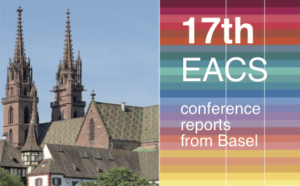No HIV transmission among Swiss infants born to mothers with undetectable viral load and who did not receive neonatal PEP
24 February 2020. Related: Conference reports, HIV prevention and transmission.
Swiss data suggests that neonatal post-exposure prophylaxis (PEP) might be unnecessary in HIV-exposed infants if maternal viral load is fully suppressed in the third trimester. [1] These findings were shown at EACS 2019.
Since January 2016 the Swiss Federal Office of Public Health (FOPH) guidelines no longer recommend PEP for infants born to HIV positive women with plasma viral load <50 copies/mL in the third trimester (two viral load results at least 4 weeks apart including at or after 36 weeks).
The study was performed to investigate the implementation and safety of these national recommendations in Switzerland.
The investigators evaluated data from the Swiss Mother and Child HIV Cohort Study and the linked Swiss HIV Cohort Study database.
The evaluation included infants born between 2010 and 2018 and for whom information on maternal viral load in the third trimester was available. It compared the frequency of neonatal PEP in infants born before and after the introduction of the recommendations. Infant HIV status was assessed by PCR at 6 months of age.
Maternal viral load in third trimester was <50 copies/mL for 363/383 (94.8%) infants born during the study period.
Of these, 264/267 (98.9%) infants born before the 2016 guideline change received PEP versus 12/96 (12.5%) born afterwards (p<0.001).
PEP was given to all 20 infants with detectable maternal viral load in the third trimester. This included 5 infants born 2016 and after.
None of the 87 infants who did not receive PEP were HIV positive. PEP exposure was reduced by 86.4% and there was no vertical HIV transmission.
The evaluation showed that the new neonatal recommendations were rapidly implemented in Switzerland. This suggests that clinicians were well-informed and accepted the arguments provided to support the change.
The investigators recommend that neonatal PEP guidelines in other high-income countries should be reconsidered.
comment
Switzerland is the first high-income country to make the recommendation not to use neonatal PEP in optimal maternal circumstances.
Although these data are reassuring with no transmissions they only include 87 infants.
BHIVA guidelines describe such circumstances as “very low risk” but recommend two weeks of AZT monotherapy for neonatal PEP. [2]
References
- Discontinuation of neonatal postexposure prophylaxis in infants born to HIV-infected mothers with suppressed plasma viral load: safety and implementation of the new Swiss recommendations. 17th European AIDS Conference (EACS). Basel, Switzerland. 6–9 November, 2019. Oral abstract PS1/5.
http://resourcelibrary.eacs.cyim.com/mediatheque/media.aspx?mediaId=78043&playlistId=78018&channel=28172 (webcast) - BHIVA guidelines on the management of HIV in pregnancy and postpartum 2018 (2019 second interim update).
https://www.bhiva.org/file/5bfd30be95deb/BHIVA-guidelines-for-the-management-of-HIV-in-pregnancy.pdf (PDF)


 Polly Clayden, HIV i-Base
Polly Clayden, HIV i-Base